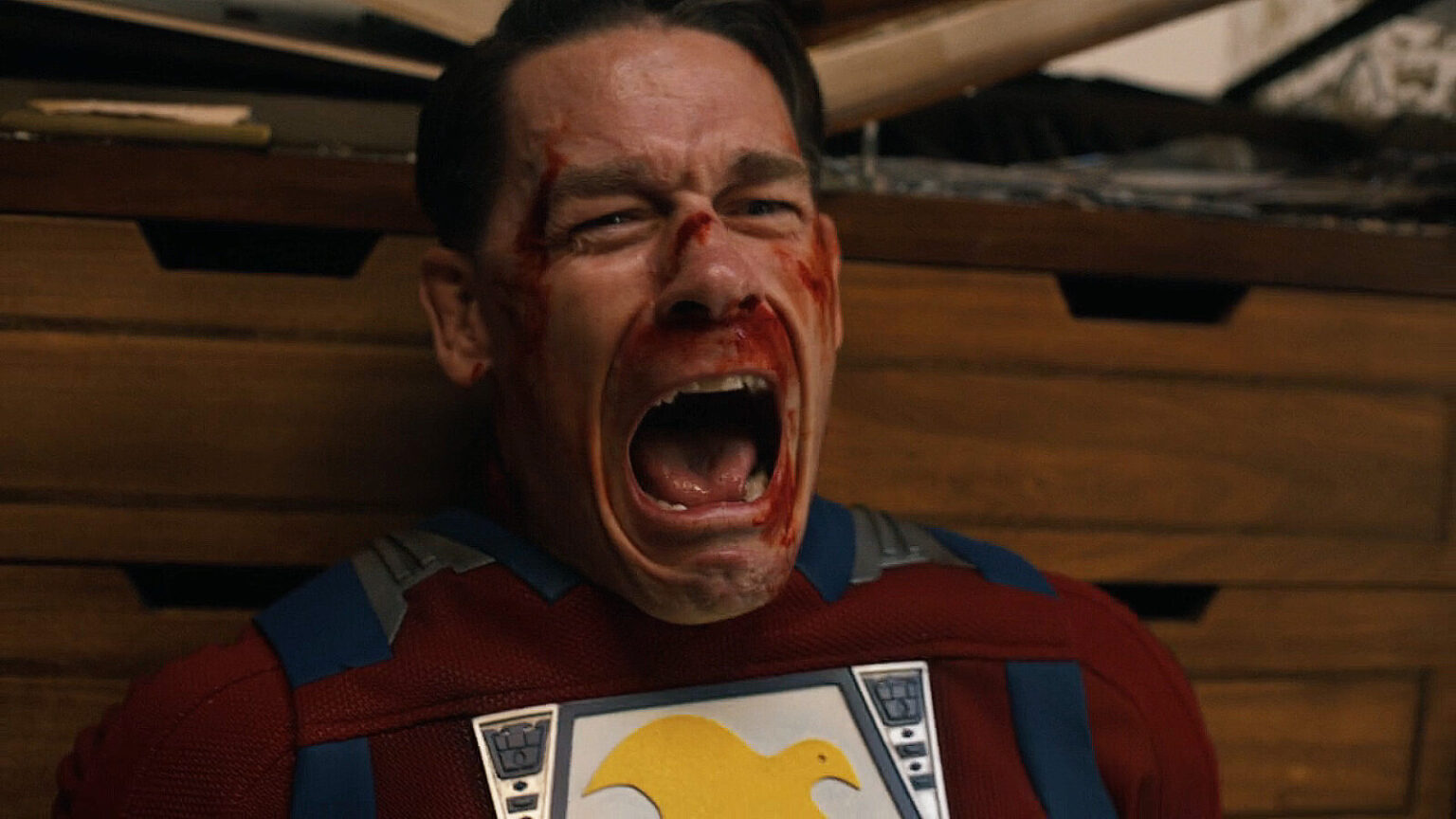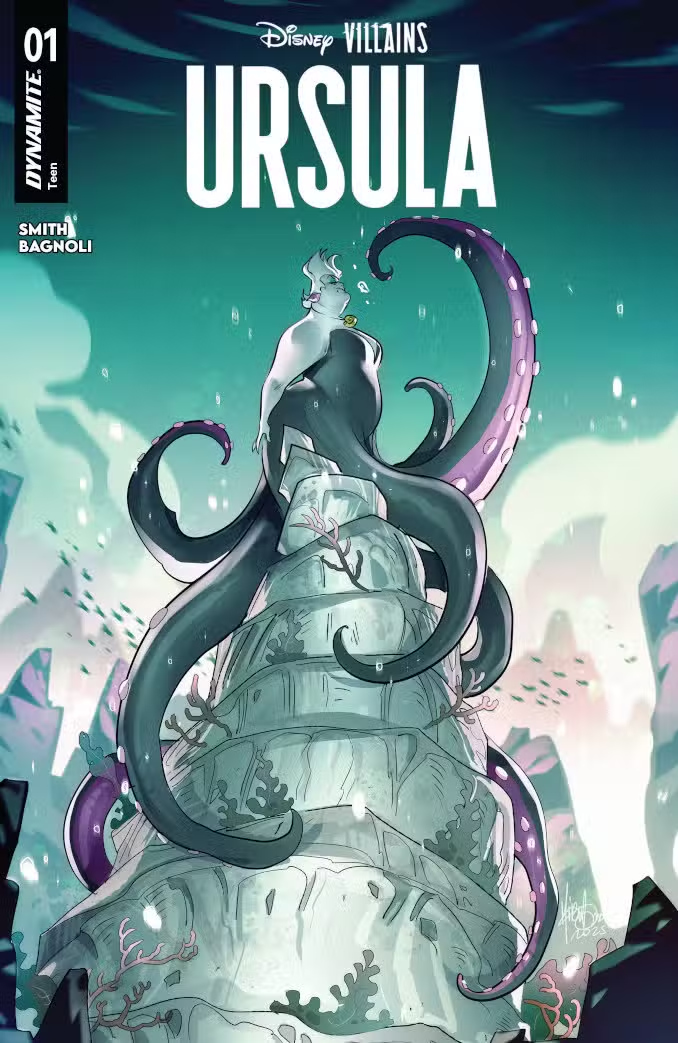TL;DR: Gunn’s superhero soap opera takes a victory lap through hell, mixing Nazi satire, genuine pathos, and John Cena’s best performance yet.
Peacemaker Season 2
There’s a moment in every James Gunn project when you realize he’s about to break your heart — not with tragedy, but with absurd sincerity. Peacemaker has always walked that razor’s edge between crude humor and emotional vulnerability, but in Season 2, Episode 7 (“Like a Keith in the Night”), Gunn pushes that balance to its absolute limits. Nazis, alternate realities, rock ballads, and an existential crisis over Pokémon — it’s a strange cocktail, but somehow, it still goes down smooth. Mostly.
At this point, Gunn is less a showrunner and more a conductor of chaos, orchestrating gut-busting comedy and raw catharsis with the same hands that once made Guardians of the Galaxy tearjerkers out of raccoons and trees. The episode, directed by Alethea Jones from a Gunn script, finds Peacemaker barreling toward its Season 2 finale, juggling quantum dimensions, moral collapse, and a surprising amount of emotional honesty.
The Nazi Planet and the Heart of the Joke
After last week’s reveal that Peacemaker’s been living on a Nazi-ruled alternate Earth, Gunn doesn’t linger on the horror. Instead, he doubles down on the absurdity. Harcourt’s incredulous discovery of Mein Kampf copies in every room is played for laughs. A giant mural of Hitler looms in the background like a punchline rather than a warning. It shouldn’t work — and yet, somehow it does. Gunn has always understood that mockery can be its own form of condemnation. When John Cena’s Chris awkwardly tells alt-Harcourt they should break up while surrounded by Nazi propaganda, it’s hilariously, painfully human.
That’s the weird alchemy of Gunn’s writing. He doesn’t pretend fascism isn’t horrifying — he just refuses to treat it with dignity. Evil in his worlds is ridiculous, loud, and stupid, and that’s why it’s terrifying. But Peacemaker Season 2 walks a tricky line between satirizing fascism and staging it as pulp adventure. For the most part, Episode 7 nails it. But every so often, the balance wobbles, like a joke told half a second too long.
The Redemption of Auggie Smith (Sort Of)
If you told me back in Season 1 that Robert Patrick’s Auggie Smith — the racist, ghostly embodiment of American rot — would come back in any timeline as a hero, I’d have laughed. Yet here we are. The alternate-universe version of Auggie, haunted by memories of his monstrous counterpart, delivers one of the episode’s most surprising speeches. “The madmen, murderers, and monsters in front of me — that’s all I can control,” he says, right before his death. It’s classic Gunn: redemption found in the gutter, grace in the hands of the damned.
The twist is played fast — maybe too fast. Alt-Auggie’s sacrifice lands emotionally, but it feels like we barely knew him. The show’s pacing this season has been erratic: five episodes of table-setting, then a mad sprint to the finish line. Still, the moment works on a thematic level. Even in a world run by fascists, the idea that goodness can flicker in unexpected places feels like a rare note of hope in Gunn’s cynical symphony.
Love, Grief, and the Peace-Cycle
Where Peacemaker really soars this week is in the quiet, almost tender interactions between Chris and Harcourt. The image of the two of them riding on the Peace-Cycle — cops in pursuit, a rock ballad blasting, her head resting on his back — might be the most James Gunn thing ever filmed. It’s ridiculous and sincere at the same time, a love story filtered through chaos and self-loathing. Cena continues to impress; his performance oscillates between absurd comedy and raw guilt with seamless ease. His breakdown over the lives he’s taken isn’t melodramatic — it’s exhausted, the way real regret often feels.
That’s what keeps Peacemaker from collapsing under its own insanity. Beneath the gags and gore, Gunn’s characters still believe in something — even if it’s just the possibility of becoming better. Harcourt and Chris’s relationship, strained and complicated, might be the emotional throughline that saves this season from its more uneven plotting.
Alt-Harcourt, Keith, and the Multiversal Mayhem
This season’s alt-reality gambit has been a mixed bag. On one hand, it’s pure comic-book pulp, giving Gunn license to stage Nazi shootouts and existential crises in the same breath. On the other, it risks diluting the show’s emotional core. Take alt-Harcourt: is she a Nazi collaborator or a survivor? The script doesn’t answer, and maybe that’s the point — complicity often hides behind silence. David Denman’s Keith (a.k.a. Captain Triumph) provides a more direct moral conflict, his rage-fueled arc setting up a final showdown that feels both inevitable and tragic.
Even with the show’s crowded subplots — Rick Flag Sr. hunting portals, Lex Luthor’s assistant turning up for connective-tissue cameos — Gunn never loses his tonal grip. He’s world-building at MCU levels now, but the DNA of Peacemakerremains: bad jokes, big hearts, and a deep skepticism of power.
James Gunn’s Tightrope Walk
One of Gunn’s superpowers as a storyteller is his ability to make tragedy and stupidity coexist. Few other creators could make a scene where a mob of white supremacists gets electrocuted in a swimming pool feel both triumphant and funny. The tonal balancing act here shouldn’t be possible — a Black woman chased by Nazis one minute, a buddy-comedy shootout the next — yet somehow Gunn pulls it off without cheapening either. His filmmaking walks right up to the line of bad taste, then dances across it in glittering boots.
Still, the season’s pacing problems are impossible to ignore. After five episodes of narrative wheel-spinning, we’re suddenly neck-deep in plot: alternate timelines, emotional reckonings, dimensional portals, and too many Vigilantes (literally). With only one episode left, the question isn’t whether Gunn can land the plane — it’s whether there’s even a runway left.
Final Thoughts: Blood, Jokes, and Broken Hearts
“Like a Keith in the Night” captures everything Peacemaker does best — absurd comedy, messy morality, and real emotion buried beneath the chaos. It’s the strongest episode of the season so far, even as it stumbles under the weight of its own ambition. Gunn’s irreverence remains his greatest strength and his biggest flaw: he can make us laugh at fascists, but sometimes he forgets that laughter can blur into detachment.
Still, I can’t help but admire the audacity. In a TV landscape full of grimdark antiheroes, Peacemaker remains defiantly weird and deeply human. It’s a show that believes broken people can still do good things — even if they have to blow up a few Nazis along the way.
Peacemaker Season 2 finally finds its groove with a wild, heartfelt, and deeply weird episode that juggles fascism, friendship, and feelings in equal measure. It’s messy, rushed, and tonally chaotic — but that’s also what makes it work.






